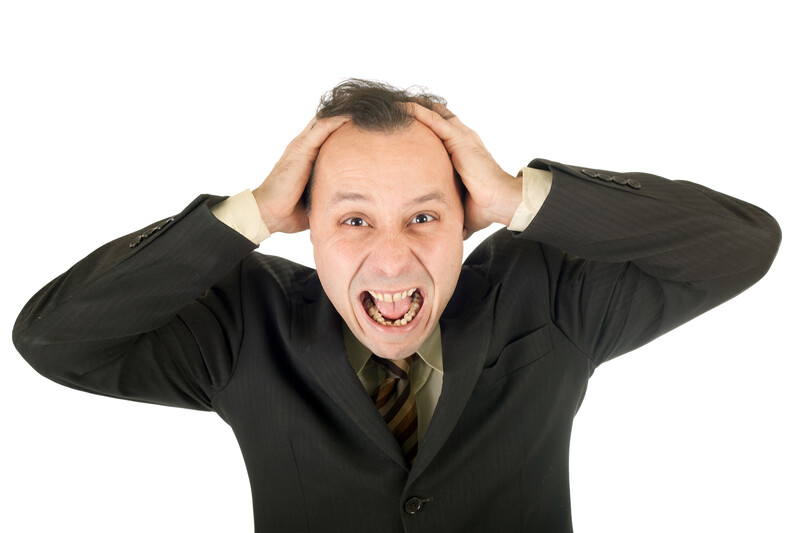Stress is an inevitable part of life, and while a certain amount of stress can be beneficial in helping us to meet deadlines, make important decisions, and deal with challenges, chronic stress can have negative impacts on our physical and mental health. One of the ways stress can manifest itself is through hair loss.
Hair loss can be a distressing and frustrating experience, and while it is often associated with aging, there are many other factors that can contribute to hair loss, including stress. In this article, we will explore the relationship between stress and hair loss and discuss ways to manage stress in order to prevent or reduce hair loss.
What is stress?
Stress is the body’s natural response to physical, emotional, or psychological demands. When we perceive a threat or challenge, the body’s sympathetic nervous system is activated, releasing stress hormones such as cortisol and adrenaline. These hormones are part of the “fight or flight” response, which helps us to deal with the perceived threat or challenge by providing a burst of energy and increasing heart rate and blood pressure.
While stress is a normal part of life, chronic stress can have negative impacts on our physical and mental health. Chronic stress can interfere with sleep, weaken the immune system, increase the risk of heart disease and other health problems, and contribute to a variety of mental health conditions such as anxiety and depression.
What is hair loss?
Hair loss, or alopecia, refers to the loss of hair from the scalp or other parts of the body. Hair loss can be temporary or permanent, and it can affect both men and women.
There are many types of hair loss, including male and female pattern baldness, alopecia areata, and telogen effluvium. Male and female pattern baldness, also known as androgenetic alopecia, is the most common type of hair loss and is caused by a combination of genetics and hormones. It typically presents as a receding hairline or thinning of the hair on the crown of the head in men, and thinning of the hair on the crown of the head or hairline in women. Alopecia areata is an autoimmune disorder in which the body’s immune system attacks the hair follicles, leading to patchy hair loss on the scalp and other areas of the body. Telogen effluvium is a type of hair loss that is typically temporary and results in thinning of the hair rather than complete baldness. It can be caused by a variety of factors, including physical or emotional stress, childbirth, drastic weight loss, and certain medications.
How does stress cause hair loss?
Stress can cause hair loss through a variety of mechanisms. One of the ways stress can affect the hair is by causing hair to enter the telogen, or resting, phase. During the telogen phase, hair is not actively growing and can easily fall out. This is known as telogen effluvium.
Telogen effluvium is a common form of hair loss that is typically temporary and results in thinning of the hair rather than complete baldness. It can be caused by a variety of factors, including physical or emotional stress, childbirth, drastic weight loss, and certain medications.
In addition to telogen effluvium, chronic stress can also lead to a condition called alopecia areata, which causes patchy hair loss on the scalp and other areas of the body. Alopecia areata is an autoimmune disorder in which the body’s immune system attacks the hair follicles, leading to hair loss.

What can I do to prevent stress?
So you understand now that stress can have severe impact on hair loss. So you are advised to keep stress levels at a minimum tot avoid hair loss. I have made a list with 10 ways to battle stress:
-
Exercise regularly: Physical activity is a natural way to reduce stress and improve overall health and well-being. Aim for at least 30 minutes of moderate-intensity exercise, such as brisk walking or cycling, most days of the week.
-
Get enough sleep: Adequate sleep is important for managing stress and maintaining overall health. Aim for 7-9 hours of sleep per night.
-
Practice relaxation techniques: Techniques such as deep breathing, meditation, and yoga can help to relax the mind and body and reduce stress.
-
Eat a healthy diet: A diet rich in fruits, vegetables, and whole grains can help to reduce stress and promote overall health. Avoid sugary and processed foods, which can contribute to feelings of stress and anxiety.
-
Connect with others: Social support is important for managing stress. Surround yourself with positive, supportive people and consider joining a support group or engaging in activities that bring you joy and connection with others.
-
Take breaks and make time for leisure activities: It is important to take breaks and engage in activities that bring you enjoyment and relaxation. This can help to reduce stress and improve overall well-being.
-
Practice good time management: Setting priorities, creating a schedule, and setting boundaries can help to reduce stress and improve productivity.
-
Seek professional help: If stress is overwhelming or causing significant disruption in your life, consider seeking help from a mental health professional.
-
Practice stress-reducing activities: Engaging in activities that promote relaxation and mindfulness, such as walking in nature, practicing yoga or tai chi, or listening to music, can help to reduce stress.
-
Reduce caffeine and alcohol consumption: While caffeine and alcohol may provide temporary relief from stress, they can also contribute to feelings of anxiety and disrupt sleep, which can exacerbate stress in the long run. It is important to consume these substances in moderation.










